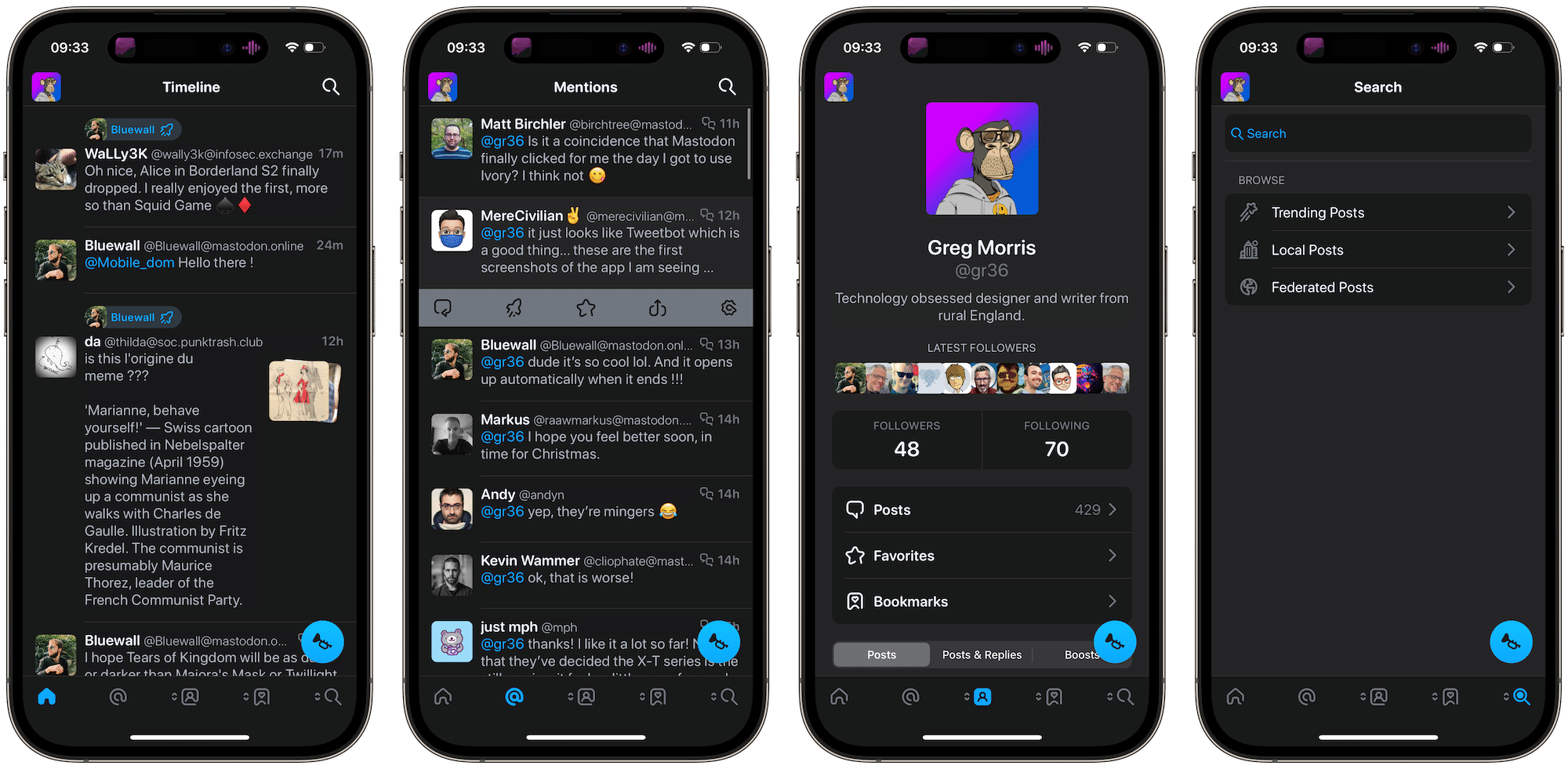When users first log into Mastodon after fleeing Twitter, I can almost guarantee that this is one of their first thoughts. The “Social networking that’s not for sale” didn’t aim to be the detox drug for those seeking to ween themselves off the bird site, but despite its claims to be radically different, it offers the perfect replacement. Mastodon doesn’t work as well though, and that’s a good thing.
There’s just no getting around the fact that Mastodon looks and feels very much like Twitter. So much so that many people expect to be able to treat it the same and wonder why some features are missing. With the introduction of apps like Ivory, the excellent app from Tweetbot maker Tapbots that is still in alpha phase, this likeness becomes even more apparent. In fact, some users have only begun to use Mastodon because of these similarities. The ways in which it differs though is an important part of the service, and something that a lot of thought goes into.
One of the biggest sticking points is still onboarding and the need to choose a server to join. Granted, most people sign up for one of the largest instances mastodon.social, simply because it comes up top for a Google search of Mastodon. However, joining through the correct channels will mean making a choice, and this is introducing friction in order for the user to put in some thought. Which instance you join is actually important, you will get the most from Mastodon by joining like-minded people, although it is effortless to move.
Perhaps the best example of these intentional barriers is the inability to add a comment to boosting a post, the Mastodon version of a re-tweet. This is intentionally missing to avoid the usual use of dunking on someone, and also encourage interaction. It doesn’t take a lot to be able to achieve a similar result by copying a link to the post and sharing, but adds in just the right amount of friction to put you off. Hopefully allowing enough time for you to think twice about your action, and perhaps decide better of it.
By adding in intentional barriers to certain parts of the social media experience, Mastodon nurtures what it feels is a better experience overall. Decentralisation is a big part of this, but also with the way the service works. Encouraging interaction and conversation, along with a completely chronological timeline, makes Mastodon a fundamentally better place to be than attention economy driven social media. It might seem ‘worse’ but it’s better for you all round.

Leave A Reply Instead?
Read Comments (0)